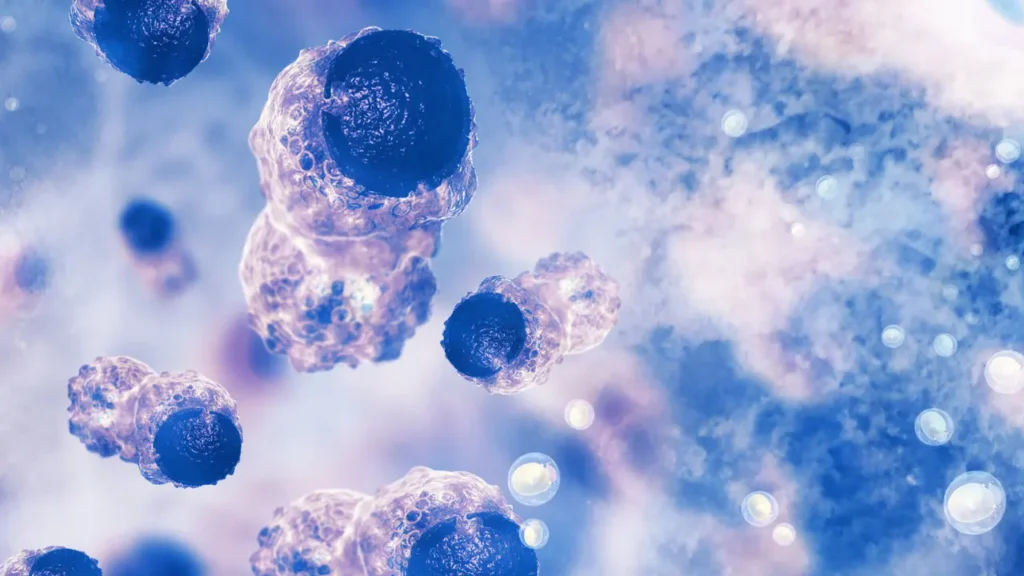Germander is a plant that belongs to the lamiaceae, or mint family, and has long been prized for its medicinal properties. Germander, formally known as teucrium chamaedrys, is a perennial shrub that is native to Europe and the Middle East and is distinguished by its fragrant leaves and pink to purple blooms. The nature, health advantages, dose, potential side effects, interactions, and appropriate use of germander as a dietary supplement will all be covered in this article.
You May Also Like:
5 Things to Consider When Choosing the Best Mushrooms for Mental Health
NutriRise Ashwagandha Root Capsules Reviewed: A Leading Herbal Stress Support Product
Germander: Benefits, Dosage, Side Effects, Drug Interactions, and Other Important Information is an original (NootropicsPlanet) article.
Nature of Germander
The chemical makeup of the germander plant is abundant in phenolic chemicals. Flavonoids and diterpenoids. teucrium, teuchamaedryn A, and neoclerodane diterpenoids are only a few of the special bio-active components that make up this plant’s chemical background and add to its therapeutic potential.
One of the main ingredients in germander is a class of plant metabolites called flavonoids, which are well known for their antioxidant properties. Their anti-inflammatory, cardio-protective, and neuroprotective properties are scienfically well known.
Teuchamaedryn A and other neoclerodane derivatives are examples of the germander diterpenoids that have demonstrated biological activity, such as anti-inflammatory, antibacterial, and anti-fungal properties. These substances also help give the plant its distinctive smell.
Health Benefits of Germander
Germander has historically been used to treat a variety of illnesses in traditional medicine. The plant’s bio-active components play a significant role in its possible health benefits.
Germander’s flavonoids have antioxidant and anti-inflammatory effects that can help reduce oxidative stress and inflammation. These characteristics point to a possible use for germander in treating ailments like autoimmune diseases, cognitive decline, and cardiovascular disease.
Diterpenoids found in germander can have many antibacterial properties, providing a natural barrier against bacterial and fungal infections. As possible modulators of opioid receptors, certain neoclerodane diterpenoids have also shown promise, suggesting prospective uses for pain relief.

Chemistry of Germander
The therapeutic properties and possible health concerns of germander are both attributed to the plant’s abundance of complex and varied phytochemicals. The majority of the Germander’s bio-active components are flavonoids and diterpenoids, two chemical groups.
A large group of plant metabolites known as flavonoids are recognized for their antioxidant properties and possible health advantages. Among other things, these substances, which comprise species like luteolin and apigenin, have anti-inflammatory, cardio-protective, and neuroprotective properties. Flavonoids contribute to the plant’s ability to fight inflammation and oxidative stress, two factors that are important with regard to a number of medical concerns.
Teuchamaedryn A and numerous neoclerodane derivatives are among the germander’s diterpenoids. These ingredients include anti-inflammatory, antibacterial, and anti-fungal properties that provide the plant with built-in protection against infections. They also add to the plant’s distinctive scent.
Physiological Properties of Germander
Germander’s bio-active substances, especially flavonoids and diterpenoids, and their interplay with the body are mostly responsible for its physiological benefits.
When consumed, the antioxidant and anti-inflammatory properties of flavonoids can help scavenge dangerous free radicals and lower inflammation. A lower risk of chronic illnesses including heart disease and neurological disorders has been associated with these properties.
Teuchamaedryn A and its derivatives, as well as other diterpenoids found in germander, exhibit a variety of biological purposes. They can fight off some bacterial and fungal infections naturally due to their possible antibacterial properties. These diterpenoids also have the ability to alter opioid receptors, suggesting that they can have analgesic or pain-relieving properties.
Sadly, some of the chemicals in germander, particularly the diterpenoids, have also been linked to hepatotoxicity along with these potential benefits. The bio-activation of these substances are reactive metabolites in the liver, which can result in cell damage and, in extreme circumstances, liver failure, and appear to be the origin of this hepatotoxic impact.

Optimal Dosage of Germander
The best amount of germander to take varies, including the way it is taken, the ailment it is being used to treat, and what your personal characteristics are, such as your age and how your overall general health is. Germander should always be used under the supervision of your healthcare provider who can propose the right dosage to avoid the possibility of developing hepatotoxicity.
Side Effects of Germander
Despite the fact that germander has a number of health advantages, it’s crucial to remember that it can also have negative consequences. Germander has been linked to hepatotoxicity, a condition that damages the liver. The symptoms might be moderate, such as weakness and nausea, or severe, including jaundice and liver failure.
The use of germander for therapeutic purposes is not advised without expert medical supervision due to this danger, and supplements have been pulled from numerous markets.

Potential Substance Interactions
Due to its effects on the liver, germander can interact with drugs that the liver is responsible for metabolizing. Various interactions can reduce the efficacy of various drugs or raise their toxicity. Prior to taking germander with other drugs, it is essential to speak with your healthcare professional.
Responsible Use of Germander
It’s important to use germander responsibly, just like you would any other dietary supplement. Germander should only be taken under the guidance of a healthcare provider because of its potential hepatotoxic effects. Avoid germander if you have liver illness or are taking medicine that is processed by the liver.
Germander:
Conclusion
Despite the fact that germander can have a variety of health advantages, it should be used with great caution due to the risk of hepatotoxicity. The cornerstone for any prospective therapeutic use of germander remains a thorough understanding of its advantages, hazards, and responsible usage. This is because current research is continuing to reveal the complexity of germander’s bio-active ingredients. If you are interested in starting a germander supplement, it is critical and required to talk to your doctor first.

References:
- 479 Germander hepatotoxicity is an interplay of toxic metabolites and immunoallergic mechanisms.link:https://www.sciencedirect.com/topics/biochemistry-genetics-and-molecular-biology/germander
- Germander refers to about 250 species of plants in the mint family (genus: Teucrium) used for centuries in herbal teas and more recently marketed as a germander extract as an aid for weight control and management of diabetes and hyperlipidemia.link:https://www.ncbi.nlm.nih.gov/books/NBK548282/
- A review of the phytochemistry, ethnopharmacology and biological activities of Teucrium genus (Germander).link:https://www.researchgate.net/publication/357626813_A_review_of_the_phytochemistry_ethnopharmacology_and_biological_activities_of_Teucrium_genus_Germander
Important Note: The information contained in this article is for general informational purposes only, and should not be construed as health or medical advice, nor is it intended to diagnose, prevent, treat, or cure any disease or health condition. Before embarking on any diet, fitness regimen, or program of nutritional supplementation, it is advisable to consult your healthcare professional in order to determine its safety and probable efficacy in terms of your individual state of health.
Regarding Nutritional Supplements Or Other Non-Prescription Health Products: If any nutritional supplements or other non-prescription health products are mentioned in the foregoing article, any claims or statements made about them have not been evaluated by the U.S. Food and Drug Administration, and such nutritional supplements or other health products are not intended to diagnose, treat, cure, or prevent any disease.


